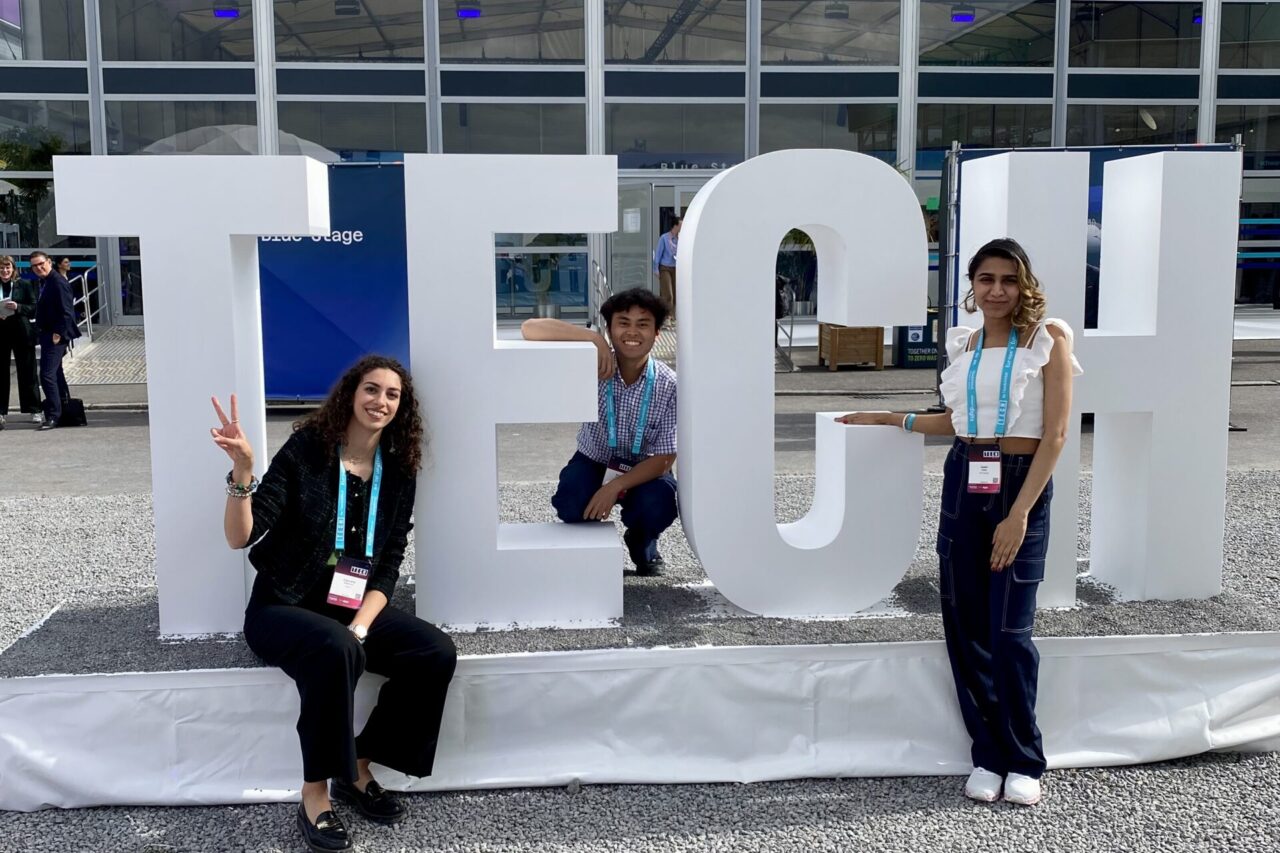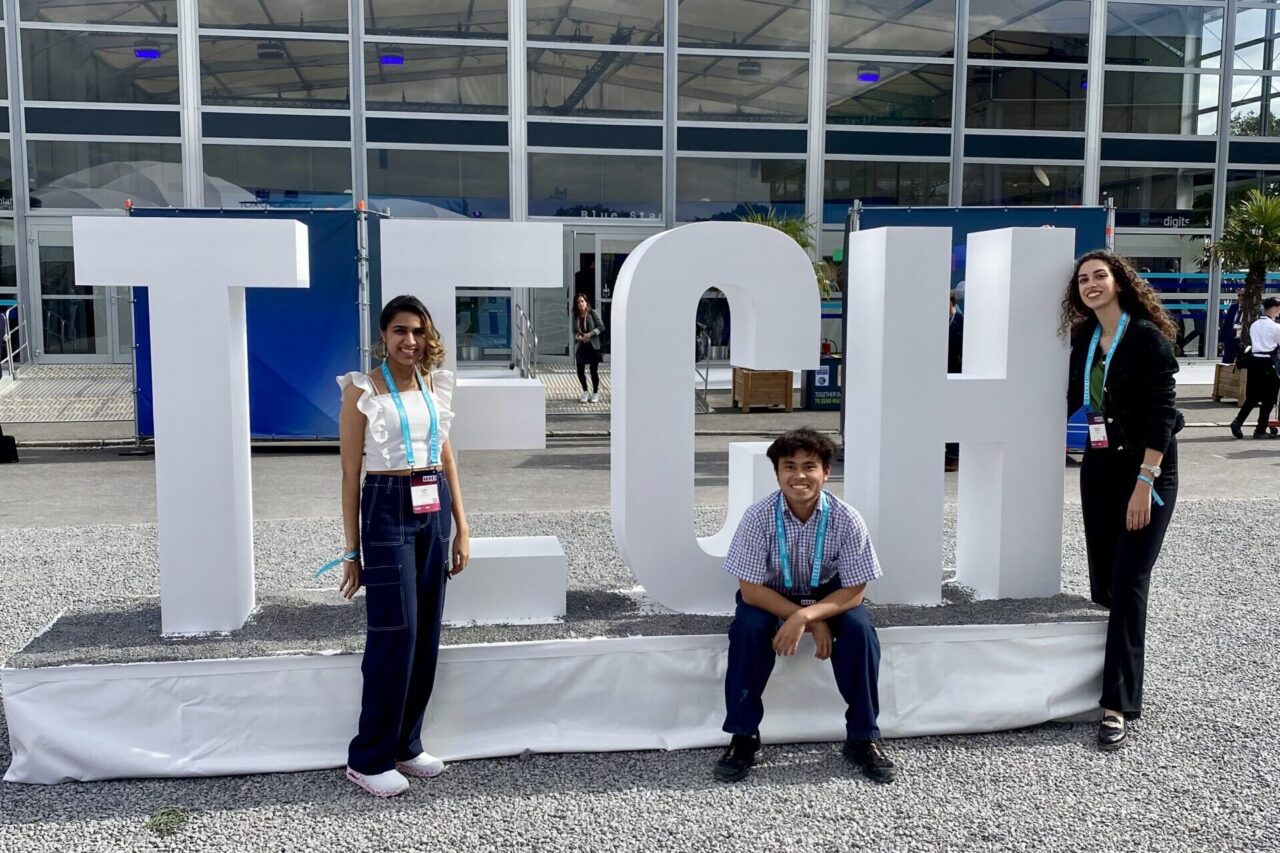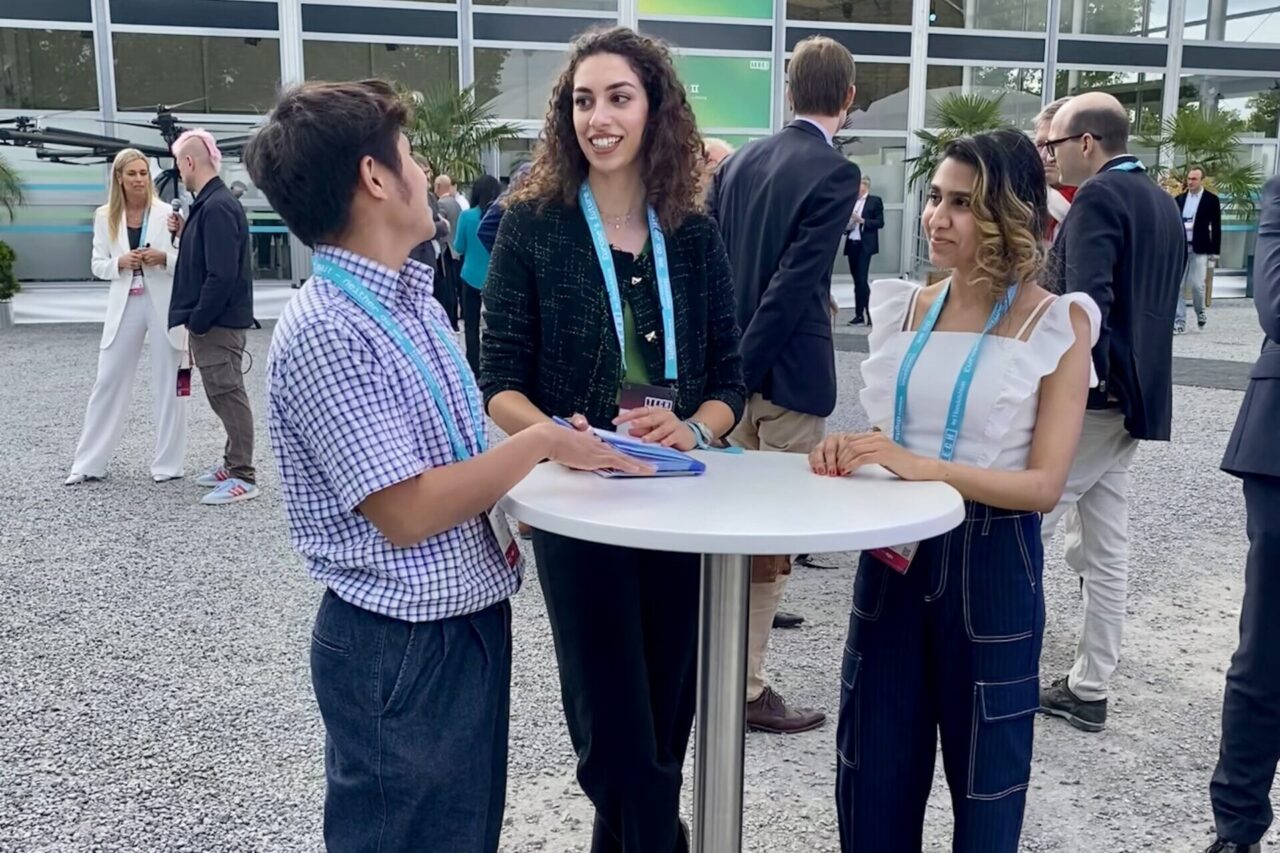CO2-neutral synthetic fuels are technically feasible today and the best promise for decarbonizing aviation. The right policy instruments could turn promise into reality, writes Anthony Patt.
Making flying actually sustainable
by Anthony Patt, 13 January 2020
Technologies are emerging that could make it possible to fly with renewable energy. The most important approach is using renewable energy to synthesize CO2-neutral hydrocarbon fuel out of water (H2O) and CO2 collected from ambient air. ETH researchers recently presented a breakthrough for highly efficient production of such fuel using solar thermal energy (see press release).

The new solar mini-refinery located on the roof of ETH’s Machine Laboratory building in Zurich can produce climate-neutral fuels for sustainable aviation in the future. (Illustration: Tricklabor / ETH Zurich)
Meanwhile, many climate-policy advocates support the idea of imposing a tax on CO2 emissions from flying. But would a CO2 tax lead to the adoption of synthetic fuel or other renewable technologies? The answer depends on how the tax revenues are used.
Simply taxing fuel will make almost no difference
We can estimate how a so-called Lenkungsabgabe1 would affect passenger volume by using data on airline cost structures and consumer behaviour, and whether it would lead to fuel switching by comparing technology costs.
Consider such a tax of CHF 100 per ton of CO2, similar to the current Swiss tax on heating fuel, and probably the upper boundary of what is politically feasible. This would lead to about a 15% increase in the price of flying, and about a 10% reduction in passenger volume. Since aviation demand is growing at about 5% per year, passenger volume would be back to where we started in about two years.
«With no demand for the new technology, costs will not come down, and we will be no closer to decarbonizing aviation than we are today.»
- Prof. Anthony Patt
What about the effect on the choice of fuel? The current production costs for synthetic fuel are about CHF 2 per litre. Future fuel from production facilities based on the new ETH solar refinery will be likely to start out at least that expensive, but the technology will get a lot cheaper if scaled up. Fossil jet fuel costs CHF 0.50 per litre, in other words CHF 1.50 cheaper than synthetic.
Given the carbon content of fuel, the CO2 tax would need to be at least CHF 300 per ton to cover this difference. At CHF 100, the tax will create no incentive for airlines to begin switching to synthetic fuels. With no demand for the new technology, costs will not come down, and we will be no closer to decarbonizing aviation than we are today. But we can escape this deadlock.
Consider such a tax of CHF 100 per ton of CO2, similar to the current Swiss tax on heating fuel, and probably the upper boundary of what is politically feasible. This would lead to about a 15% increase in the price of flying, and about a 10% reduction in passenger volume. Since aviation demand is growing at about 5% per year, passenger volume would be back to where we started in about two years.
«With no demand for the new technology, costs will not come down, and we will be no closer to decarbonizing aviation than we are today.»
- Prof. Anthony Patt
What about the effect on the choice of fuel? The current production costs for synthetic fuel are about CHF 2 per litre. Future fuel from production facilities based on the new ETH solar refinery will be likely to start out at least that expensive, but the technology will get a lot cheaper if scaled up. Fossil jet fuel costs CHF 0.50 per litre, in other words CHF 1.50 cheaper than synthetic.
Given the carbon content of fuel, the CO2 tax would need to be at least CHF 300 per ton to cover this difference. At CHF 100, the tax will create no incentive for airlines to begin switching to synthetic fuels. With no demand for the new technology, costs will not come down, and we will be no closer to decarbonizing aviation than we are today. But we can escape this deadlock.
Using tax revenues for technology support
It will take decades to build the production capacity to satisfy global aviation demand with synthetic fuel; the new ETH technology, for example, would require covering an area greater than that of Switzerland with solar thermal collectors. An ambitious scenario would be for 1% of aviation fuel to be synthetic within the next few years, and then for production capacity to grow at about 20% per year, similar to the exponential growth that has taken place with solar photovoltaic (PV). That would get us to 5% synthetic fuel use in aviation soon after 2030, and ideally could reach 100% by 2050.
Just as with PV, the right policy instruments could make this happen. What we need is to create initial demand for synthetic fuel, stimulate investment, and pass synthetic fuel’s additional costs on to consumers in a tolerable way.
For example, the government could require airline fuel suppliers to mix in some fraction of synthetic fuel, starting below 1% of total fuel volume but rising each year. Revenues from an aviation tax or surcharge could cover the additional cost. A back-of-the-envelope calculation suggests that an initial tax of CHF 0.05 per litre on fossil aviation fuel would more than suffice, and this would lead to about a 3% increase in airline ticket prices.
As the fraction of synthetic fuel increases, the tax would have to rise as well, to cover the increasing volume. But not very much, because the production costs for synthetic fuel will be falling. With continued investment, it is realistic to expect the cost of synthetic fuel to fall to CHF 1 per litre. In thirty years’ time, an airplane flight burning 100% synthetic fuel would cost about 25% more than one burning fossil fuel today. We will have decarbonized the sector, with passenger prices rising so gradually as to be barely noticeable.
Article republished from: Making flying actually sustainable
Just as with PV, the right policy instruments could make this happen. What we need is to create initial demand for synthetic fuel, stimulate investment, and pass synthetic fuel’s additional costs on to consumers in a tolerable way.
For example, the government could require airline fuel suppliers to mix in some fraction of synthetic fuel, starting below 1% of total fuel volume but rising each year. Revenues from an aviation tax or surcharge could cover the additional cost. A back-of-the-envelope calculation suggests that an initial tax of CHF 0.05 per litre on fossil aviation fuel would more than suffice, and this would lead to about a 3% increase in airline ticket prices.
As the fraction of synthetic fuel increases, the tax would have to rise as well, to cover the increasing volume. But not very much, because the production costs for synthetic fuel will be falling. With continued investment, it is realistic to expect the cost of synthetic fuel to fall to CHF 1 per litre. In thirty years’ time, an airplane flight burning 100% synthetic fuel would cost about 25% more than one burning fossil fuel today. We will have decarbonized the sector, with passenger prices rising so gradually as to be barely noticeable.
Article republished from: Making flying actually sustainable
Reference
1. A Lenkungsabgabe is a tax that is designed to influence specific behaviour through a change in prices, but not to generate new revenues or to fund governmental programmes also related to that behaviour. For example, the revenues from the Lenkungsagabe on heating fuel is returned to taxpayers through a reduction in AHV and health insurance fees. There is no English word or phrase that describes this precise concept.
1. A Lenkungsabgabe is a tax that is designed to influence specific behaviour through a change in prices, but not to generate new revenues or to fund governmental programmes also related to that behaviour. For example, the revenues from the Lenkungsagabe on heating fuel is returned to taxpayers through a reduction in AHV and health insurance fees. There is no English word or phrase that describes this precise concept.





